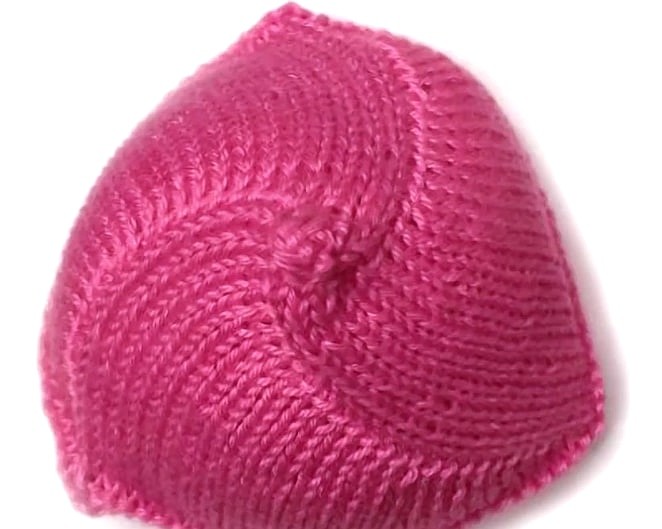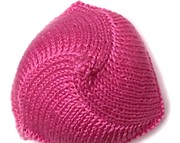KNITTED KNOCKERS
Reconstructive surgery isn't always an option for women who have lost their breasts to cancer or other life-altering conditions.
For those who don’t receive implants, traditional prosthetics or reconstruction, a softer, less permanent alternative exists — "Knitted Knockers."
"When I saw them for the first time, I thought it was a novelty, but it was always in the back of my mind," knitter Sarah Flesher said Wednesday.
Flesher said it was about two years ago when a friend's mom was going through breast cancer and dealing with her new reality of a breastless identity.
"My friend asked if I could do anything for her mother. She was stuffing her bra with rags," Flesher said. "It was at this point I started knitting them."
Knitted Knockers are handmade, knitted breast prostheses for women who have undergone mastectomies or other breast procedures. They can come in any shape, color or size and be made with or without knitted nipples. They're made with special cotton that doesn't get hard and stuffed with polyester fiberfill. They're adjustable, washable and fit right into any bra.
"They can be shaped to you," said Flesher, one of two registered Knitted Knocker knitters in Idaho. "You get them in a cup size; you can alter the amount of stuffing in them so you match side to side if you just need one."
Although Idaho has just a couple registered Knocker knitters, the ladies of the local Bag and Boob Babes — an Arizona-based nonprofit that knits and distributes drain bag aprons and chemo caps — also contribute their handiwork to the cause.
Sheila Wayman of Dalton Gardens is the coordinator of the Bag and Boob Babes Too group in North Idaho. She said the BBBT crew will distribute at least 400 Knockers to women of the Inland Northwest in one year.
She recently received emails from recipients who expressed what these simple yet significant gifts of knitted prosthetics, drain bags and chemo caps have meant to them.
"What an incredible gift you gave me, at a time when I was totally overwhelmed," wrote one North Idaho woman. "It's such a traumatic time, going through all this cancer diagnosis and mastectomy, and I was sort of like a deer in the headlights. I am blessed in that I have a wonderful support team of family and friends helping me through this, and still your act of love and kindness in making these for women like me, moved me to tears."
"I cried for so many reasons," another North Idaho woman wrote. "I cried because someone understood exactly what the need was and met it while I'm walking into this mastectomy a little bit in the dark. And I cried because the fabric was so soft and I knew I would find comfort in that in my most uncomfortable moments."
Wayman said she cried when she read these earnest testimonies.
"They're so heart-touching," she said. "This is why we do what we do."
Knitted Knockers has an international network that provides the Knockers to women free of charge.
Anyone can help, including yarn shop owners, knitting groups and even medical facilities that wish to keep them on hand for patients. The Washington-based organization's website, www.knittedknockers.org, has information about requesting, creating and distributing Knockers. Patterns, tutorial videos and more can all be found on the site.
History and even more information is available on the national website, www.knittedknockersusa.org.
These small but important items that help women adjust to life without their breasts take only a couple hours to make. Flesher said an experienced knitter can get them made in an hour.
"It's mostly to bring joy to others,” she said. "It's just kind of an amazing thing."



